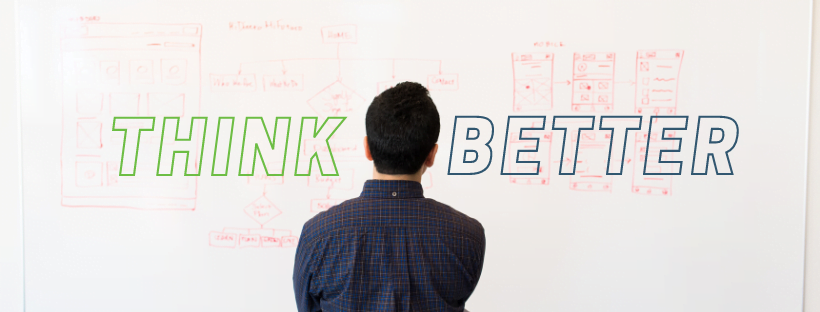Sleep has long been underrated. Like air, food, and water, our mental and physical well-being actually depend on how much and how little shut-eye we get each day. The National Sleep Foundation (NSF) 2015 recommends that adults should have at least 7-9 hours of sleep at night. However, studies conducted by the Center for Disease Control or CDC show that 35% of adults get less than that. In 2014, the CDC declared sleep deprivation as a public health problem, and maybe now, it’s about time that we all take it seriously.
Could yawning repeatedly while at work after a night out be considered as being sleep-deprived? Missing a few hours of sleep for one day might not immediately constitute as such, but a constant lack of it does. Medical News Today likens sleep deficiency to that of being intoxicated or feeling drunk where you suffer a decrease in alertness, blurred vision, and most importantly, an imbalance of emotions and thinking ability. If 50-70 million Americans are believed to endure sleeping disorders, imagine how the productivity of a workplace is diminished when some, if not most, of its employees, are sleep-deprived. The Sleep Foundation puts it simply, “when we don’t get enough quality sleep, it impairs our “executive function” — a set of abilities we need to do well in school, at work, and in all realms of daily life.” And so, with the growing prevalence of sleep deprivation, as a business owner, you must now equip yourself, not just against a workplace full of exhausted and moody people, but more so, against the effects that this public health crisis brings to your company. In fact, Fortune Magazine reports that the United States loses over $411 billion annually due to sleep deprivation.
Below are some more reasons why you must make it your business to ensure that you and your employees get your daily dose of vitamin Z.
Sleep well to think better.

Sleep enables us to think clearly, react normally, and create memories. It is when we are sleeping that our brains make connections to help us process and remember information. Whereas, a lack of sleep makes it difficult for us to focus, to take in new data, or to make properly coordinated movements. Additionally, when we are sleep-deprived, our bodies attempt to balance the need for this through short sleep attacks called “microsleeps”. When this happens, our brains are completely addled, that we are unable to process what is happening around us for a brief period of time. It is, therefore, safe to assume that a workplace where there are people who are suffering from sleep deprivation, will be more vulnerable to mistakes, losses, and accidents.
Sleep well to feel good.

Sleep affects our mood. With a good night’s rest, you are less likely to be emotional and quick-tempered. Sleep also lessens the risk of developing anxiety and depression. On the other hand, sleep deprivation makes your brain exhausted and stirs up negative emotions. With prolonged lack of sleep, hallucinations and bipolar mood disorder may also be triggered. Sleep, thereby, ensures that your cognitive abilities are fully functional, which in turn enables you and your managers to make sound decisions and your employees to use their creativity and skills to their full potential. Moreover, where good working relationships exist, increased productivity and job satisfaction are sure to follow.
Sleep well to be healthier.

Sleep strengthens our immune systems against viruses that cause common colds and flu. What’s more, it enables our body to produce essential hormones needed for growth in children and for the development and health maintenance in adults. With the help of these hormones, our bodies are able to build muscles, fight infections, and repair cell damage. On the other hand, poor sleeping habits mean it will take us a longer time to recover from illnesses, as well as open our predisposition to chronic illnesses. A sleep-deprived workforce, as a result, is more likely to call in sick and miss important workdays.
Sleep well to live longer.

Sleep ensures our quality of life. Aside from eating too much and not exercising, sleep deprivation causes our bodies to gain unnecessary weight. Because sleep levels the two hormones that control our appetite, without it, our cravings intensify, thus, we overeat later in the day or have midnight snacks.
Furthermore, insulin is released by our bodies when we are sleep-deprived, which in turn increases the storage of fat in our bodies, making us more prone to Type 2 Diabetes. Sleep also maintains our blood pressure and sugar levels which, if left unchecked, amplifies our risk for cardiovascular diseases. Getting the right amount of shut-eye consequently protects our bodies and guarantees long and full lives; more than enough to pursue and achieve our personal and professional goals.
Proper Sleep for Better Productivity
Sleep, therefore, is not a luxury, nor a distraction for things we tend to believe is more important. In some cases, though, we are forced to miss sleep because of family obligations, shift work, or jobs that are demanding. Whatever the situation may be, every business owner should make adequate sleep one of his foremost priorities, not just for his employees but for himself as well. Here are four ways to do just that.
Find the root.

The first step to solving a problem is by finding what causes it. Whether it is brought about by a personal dilemma or a work-related one, stress is one of the biggest triggers of sleep deprivation. Start by identifying your stressors and then taking the steps to lessen them. Also, by knowing what to expect and when to expect it, you can see patterns and prepare for them. Once you are aware of what triggers these, you are empowered to address and manage stress better. Doing so would not only significantly lower your stress levels, but it will also consequently help you sleep better.
Sweat it off.

Regular exercise is not only recommended for its benefits to our bodies, but also for our mental and psychological health. When we do physical activities such as running, playing sports, taking care of kids (yes, this counts!), or working out, our bodies release endorphins that activate positive feelings. In fact, exercise is effective, although underused, to treat mild to moderate depression. What’s more, keeping fit through exercise makes our muscles loose and flexible, as opposed to being tight and painful when we are stressed. Depression and stress are two factors that are linked to sleep deprivation, and engaging in physical activity is one way of combating these. It should be noted, though, that exercise must be done at least 2 hours before bedtime to allow our body temperature to return to normal. An alternative activity to a rigorous workout may be a relaxing one like yoga and meditation.
Eat right.

Studies show that sugar temporarily boosts our blood sugar levels and when taken near bedtime, will wreak havoc to our sleeping patterns, causing sleep deprivation. On the other hand, by eliminating sodas and snacks high not only in sugar but also in sodium and saturated fat, we greatly reduce the side effects of sleep deprivation. Replacing junk food with fruits, vegetables, raw or unsalted roasted nuts, salads, and healthy protein smoothies will do wonders for our bodies and our mental and psychological health. Apart from these, it is recommended that caffeine intake be at a minimum and should only be taken before noon so as not to keep you awake at night and cause sleep deprivation.
Hire a virtual assistant.

What keeps most of us up at night is probably the thought of not having enough time. Some people have taken sleep for granted because of a need to do more, be more, and have more. So instead of being in bed “recharging”, others would rather be somewhere else, doing something else. There is a way to go around this without sacrificing your drive to become successful, nor your desire to have a fuller life – and that is by hiring a personal assistant, a virtual assistant to be exact. When you outsource work, you prioritize the tasks that earn you the most value while delegating the rest. Virtual assistant services free you from non-essential day-to-day responsibilities and enable you to get more out of your workday by allowing you to focus on expanding your business and, most importantly, achieving your much-needed work-life balance.
Some of the undertakings a virtual assistant can do for business owners are as follows: administrative duties and office support for supervisors and managers, fielding phone calls, responding to inquiries through emails or company websites, creating spreadsheets and presentation decks, and internet research. Also, an online personal assistant can manage your calendar for you. May it be a professional or a personal one, you can be sure that having someone make appointments, deal with invitations, plan events for you, and be reminded of these, is a huge reprieve from a busy life. What’s more, with a personal virtual assistant, you never have to worry about missing a crucial business appointment or an important family event, simply because your schedule has been efficiently laid out for you.
These are just some of the myriad of ways a virtual assistant can ease the burden of an often stress-filled life that every business owner possesses. Hiring an extra set of hands via an online assistant, therefore, may very well be one of your best bets in getting enough sleep for you and consequently, for your employees.
Sleep Better = Work Better.

Sleep is a necessity. It is something we all need to be able to function in our daily lives. This is why it is imperative that every business owner acknowledges this and makes sure that he and his employees get the full benefit of a full night’s rest. Sleep deprivation brings serious consequences, but it is not impossible to conquer it.
